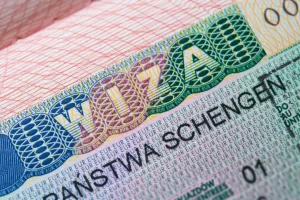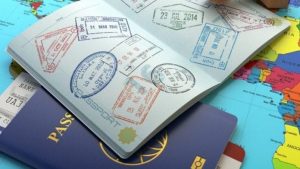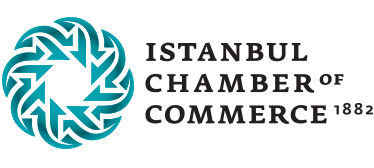What You Need to Know About Visa
‘Visa’ means the official permission obtained from relevant authorities to enter another country other than the country of citizenship. Before applying, it is essential to find out if the destination country requires a specific visa type. There is no visa requirement to travel to some countries that have visa exemption agreements with your country of citizenship. In addition, not every country requires a visa, and multiple countries can be covered with a single visa.
Depending on the reason for entering the country, the visas that people need to apply for also differ. Accordingly, visas are separated by specific codes. It is important to note these codes from the consulate or intermediary institution officials during the application. Visa applications can be made for accommodation, work, participation in various cultural activities and similar reasons.
Visa types for citizens who want to go to America are generally separated from each other in 22 articles. According to this, the specific visa types are:
- Visa A is issued to foreign diplomats.
- Visa B is eligible for touristic travellers.
- Visa C is the type used by transit passengers.
- Visa D is for people who are a member of the travel crew, such as an airline employee or ship captain.
- Visa E is issued to travellers who are merchants or for investment purposes.
- The F Visa is the type of visa students apply for.
- The G Visa is a visa issued to foreign government officials working in an international organization(s).
- The H Visa is a visa for people travelling abroad as a worker.
- I Visa is a visa for foreign media and press members, spouses and children.
- The J Visa is issued to visitors applying for exchange programs.
- The K Visa is a type of visa obtained by American citizens’ spouses, children, or fiancées.
- L Visa is given to managers, directors or specialist employees working in multinational companies and sent to head office or branch abroad temporarily.
- The M visa is issued to persons who have attended training programs or courses applied for in the vocational field.
- The NATO Visa is a type of visa issued to NATO employees and their families.
- O Visa is a visa that can be obtained by highly talented scientists, artists, educators, athletes, and businesspeople.
- The P Visa is a visa granted to athletes and artists who are individuals or team players.
- Q Visa is given to people who apply to participate in international cultural exchange programs.
- The R Visa is the type of visa received by religious officials.
- The S Visa is a visa issued to people who report or witness a crime or crime and can travel for this purpose.
- The T Visa is a visa issued to victims of human trafficking.
- The NAFTA Visa is given to Canadian and Mexican persons who will travel to the United States to do business, and it stands for the North American Free Trade Agreement.
- The U Visa is given to people who have been victims of certain crimes.
It is possible to collect all these visa types in 2 groups as visas applied for immigration purposes and visas applied by non-immigrants.
US Visas for Immigration Purposes
- engagement visa,
- family-based immigrant visa,
- Employer-based immigrant visa,
- green card,
- Returning resident foreign applications.
Visas Applied by Non-Immigrants
- Journalists and members of the press (I),
- Official and diplomatic visas (A, G, NATO),
- Temporary workers, work or internship visas (H, L, O, P, Q, R),
- Business, health, tourism (B),
- Exchange program (J),
- Transit passes from America (C),
- Crew visa (D),
- Investor or trader visas (E),
- Academic education, foreign language education student, or vocational or non-academic study visas (F, M)
Schengen Visa
This visa, which is valid in all European countries that have signed the Schengen agreement, also gives the person the right to free movement between the mentioned countries without any other permission. People can transit between the countries where the visa is official, by land, air, rail or sea, without any consular application. With Schengen Visa, Germany, Austria, Belgium, Czech Republic, Denmark, Estonia, Finland, France, Netherlands, Italy, Iceland, Spain, Sweden, Switzerland, Latvia, Lithuania, Liechtenstein, Luxembourg, Hungary, Malta, Norway, Poland, Portugal, Slovakia, Slovenia and Greece.
Other Visas
Unlike the aforementioned visas, there are also visas such as UK Visa, Canada Visa, Dubai Visa and China Visa. The common point of these visas, which are called with different names according to regions or countries, is that they are classified according to their purposes. In summary, visas other than Schengen Visa are tourist visas, transit visas, student visas, visas at the border gate and work visas.
How to Get a Visa?
To obtain a visa, one must apply with consulates or relevant foreign representatives. In addition, it is possible to apply for a visa through intermediary institutions and tolls at the airport or border gates. Before going to these institutions, it is necessary to prepare the required documents and then fill out the petition given during the application. Nowadays, with the development of technology, visa applications can also be made online. For this, ‘E-Visa’ is an alternative to the visa process at the door. However, this application is not yet used by every country. Online application requests can only be made for Bahrain, New Zealand, Georgia, Armenia, Turkey, Qatar, Sri Lanka, Moldova, Kuwait, India, Singapore, Malaysia and America.
Documents Required to Obtain a Visa
The documents required for a specific visa type may differ from country to country. However, the documents needed for each country are as follows:
- Certificate of residence
- Passport
- Full Certificate of Identity Registration Example
- Family Passport (valid for married candidates who wish to apply)
- Professional Status Certificate
- Bank account statement
- Biometric Photo
Visa Fees
Visa fees vary according to the country of destination. On average, as of 2022, visa fees are around 80 Euros. In addition to this fee, there is also a processing fee paid to the centre where the application is made. During the application, the fee can be paid in cash or by credit card. The payment option also varies according to the centre or consulate where the application is made.
What is a Visa Advisor?
Visa advisors are agencies/private companies providing consultancy services for overseas education ; they are experts who provide services related to the visa application process for people who want to travel abroad. These people provide all communication needed by their clients in the places they work, assist people in preparing the necessary documentation and inform their clients about visa types and legal regulations. It’s also among the duties of visa consultants to make official correspondence with necessary places such as the embassy and to book appointments.
Visa Consultancy Fees
Visa consultancy fees vary according to both companies and the services provided. The important thing here is to receive a full-time service throughout the process from a company. Some companies also offer alternative package options charged according to the services they provide.
Accordingly, there is consultancy, booking appointments, preparing a list of personal documents and checking documents. In addition, services such as filling out the application forms, preparing the full application files and writing the petition and sponsorship letters can be included in the packages at different price points.





